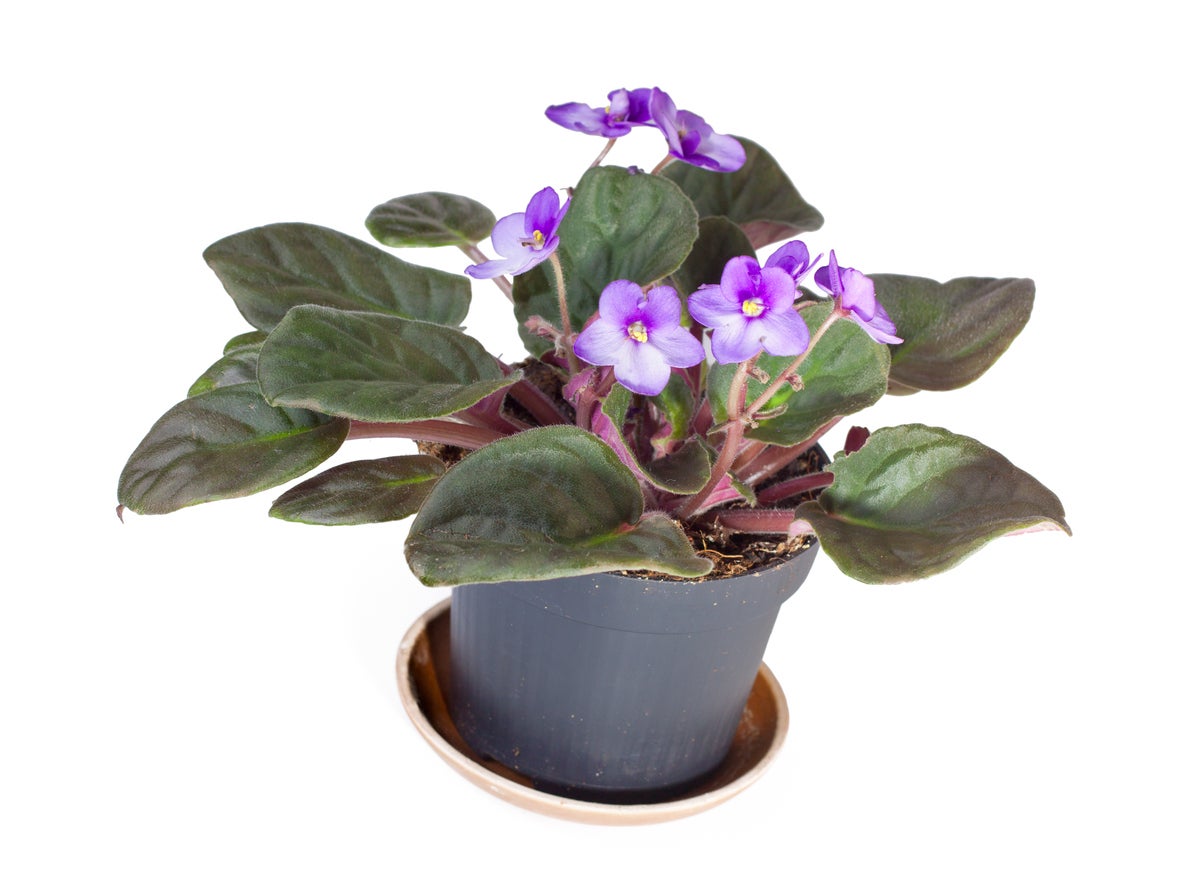African Violet Aphid Control – What To Do About African Violet Pests


Sign up for the Gardening Know How newsletter today and receive a free copy of our e-book "How to Grow Delicious Tomatoes".
You are now subscribed
Your newsletter sign-up was successful
Although African violets (Saintpaulia ionantha) hail from Africa, lots of people in the United States grow them as indoor plants. They are easy to care for and beautiful, blooming most of the year, but that doesn’t make them free of aphids or other pests.
When you find African violet pests attacking your favorite potted plants, you need to take appropriate action. Read on for information on managing African violet insects, including tips for African violet aphid control.
About African Violet Pests
African violets have come a long way from their native home in the coastal woods of east Africa. Their vibrant blossoms in blues, pinks, and lavenders can be seen on window sills everywhere since they have become one of the most popular house plants in our country.
But the flower’s popularity doesn’t prevent African violet pests from going on the attack. While one pest – root-knot nematodes – can kill the plant, most pests are irritating bugs like aphids that can be controlled relatively easily.
Aphids are small, soft-bodied insects that such juices from plants, causing some distortion of new growth. These pests can be light green, dark green, brown, or black. If you have an African violet with aphids, you may not even notice the bugs until you notice honeydew, the sweet substance secreted by the bugs. Ants love honeydew, so aphids on African violets may lead to ants on African violets too.
Managing African Violet Insects
Fortunately, African violet aphid control is fairly easy. Usually, when you have African violets with aphids, you can use simple warm water and dish soap to remove them. Alternatively, you can find different pesticides that will kill aphids on African violets. But for these and other pests, it’s always better to try non-chemical methods first. Neem oil is another option.
The best strategy for managing African violet insects other than aphids depends on the type of pest involved. Management techniques range from spraying water on pests to limiting irrigation.
Sign up for the Gardening Know How newsletter today and receive a free copy of our e-book "How to Grow Delicious Tomatoes".
For example, if your African violet pests are small black flies that seem to be running around the soil or flitting about randomly, you are dealing with fungus gnats. The larvae look like small worms that spin webs on the soil surface.
Fungus gnat larvae feed on the roots of the African violet plants, but the adults do not cause any direct damage. Still, they are annoying. Your best strategy is to reduce the amount of water you give your African violet to reduce the gnat population.
Another of the African violet pests you might see on your plant is the mealybug. They suck juices out of the plant leaves, which distorts them. If your plant has mealybugs, eliminate them by spraying on warm water. Alternatively, use an alcohol-dipped cotton swab.

Teo Spengler is a master gardener and a docent at the San Francisco Botanical Garden, where she hosts public tours. She has studied horticulture and written about nature, trees, plants, and gardening for more than two decades, following a career as an attorney and legal writer. Her extended family includes some 30 houseplants and hundreds of outdoor plants, including 250 trees, which are her main passion. Spengler currently splits her life between San Francisco and the French Basque Country, though she was raised in Alaska, giving her experience of gardening in a range of climates.